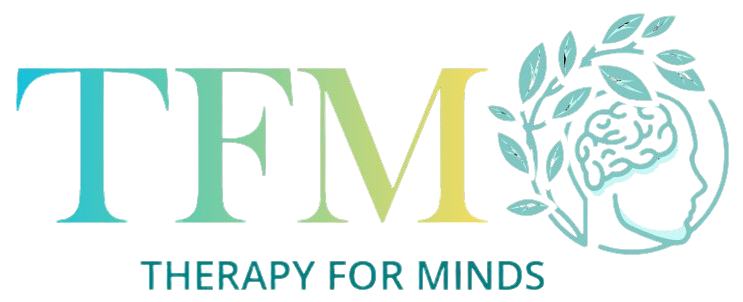Cognitive Behavioral Therapy (CBT): A Powerful Tool for Transforming Your Mindset
In today’s fast-paced world, mental health struggles such as anxiety, depression, and stress are becoming increasingly common. The way we think, feel, and behave can deeply influence our mental and emotional well-being. One of the most effective therapeutic approaches to addressing these issues is Cognitive Behavioral Therapy (CBT).
CBT is a structured, time-limited, and goal-oriented form of therapy that focuses on helping individuals identify and challenge distorted thought patterns, behaviors, and beliefs. The aim is to replace these harmful patterns with healthier, more realistic ones, ultimately leading to improved emotional and mental well-being.
At Therapy For Minds, we believe in providing affordable, high-quality therapy to everyone, ensuring that individuals can access the support they need to improve their mental health. In this article, we’ll delve into the benefits of CBT, how it works, and how our expert therapists can guide you toward a happier, healthier mindset.
What Is Cognitive Behavioral Therapy (CBT)?
Cognitive Behavioral Therapy (CBT) is a well-established therapeutic approach that helps individuals identify and change unhelpful thought patterns, behaviors, and emotional responses. Unlike traditional talk therapy, CBT is more structured and involves active collaboration between the therapist and the client. The focus is on the here and now, aiming to resolve current issues rather than exploring the past in depth.
CBT operates on the principle that our thoughts, emotions, and behaviors are interconnected. Negative thought patterns can lead to emotional distress and unhealthy behaviors, which can further perpetuate mental health issues. CBT helps individuals break this cycle by:
- Identifying negative thoughts and beliefs.
- Understanding how these thoughts influence feelings and actions.
- Challenging and reframing these thoughts to adopt healthier, more constructive ones.
- Developing practical strategies to cope with everyday challenges.
Why CBT Is So Effective
Cognitive Behavioral Therapy has been proven to be an effective treatment for a wide range of mental health conditions, including:
- Anxiety: CBT helps individuals identify and challenge irrational fears, reducing the impact of anxiety in everyday life.
- Depression: By addressing negative thought patterns and promoting positive thinking, CBT helps individuals manage feelings of sadness and hopelessness.
- Stress: CBT teaches stress management techniques, enabling individuals to cope more effectively with stressful situations.
- Obsessive-Compulsive Disorder (OCD): CBT helps individuals with OCD challenge intrusive thoughts and compulsive behaviors.
- Post-Traumatic Stress Disorder (PTSD): CBT assists individuals in processing traumatic experiences and reducing the emotional impact of trauma.
- Phobias: CBT is highly effective in helping individuals overcome irrational fears and phobias.
According to a study published in the American Journal of Psychiatry, CBT has been shown to be equally effective as medication in treating anxiety and depression, making it a top choice for many seeking long-term solutions to mental health challenges.
How CBT Works
CBT involves a collaborative process between the therapist and the client. Here’s a general overview of how a CBT session typically works:
- Assessment: The therapist begins by understanding the client’s specific challenges, concerns, and goals. This may include identifying thought patterns, emotional triggers, and behaviors that need attention.
- Identifying Negative Thought Patterns: The therapist helps the client become aware of any negative or distorted thoughts (e.g., “I’m not good enough” or “This situation will never improve”). These thoughts often contribute to emotional distress.
- Cognitive Restructuring: The therapist works with the client to challenge these negative thoughts by asking questions like, “What evidence supports this thought?” or “Is there another way to view the situation?” The goal is to replace negative thoughts with more balanced and realistic ones.
- Behavioral Activation: Clients may also engage in activities that promote positive emotions and behaviors. This might include setting small goals or engaging in activities that bring joy and a sense of accomplishment.
- Skill Building: CBT teaches clients practical skills such as relaxation techniques, problem-solving strategies, and coping mechanisms to manage stress, anxiety, and other challenges.
- Ongoing Practice: One of the key aspects of CBT is the emphasis on homework assignments. Clients are encouraged to practice the skills learned in therapy and apply them to real-life situations between sessions. This helps reinforce new ways of thinking and behaving.
The Benefits of Cognitive Behavioral Therapy (CBT)
- Evidence-Based Effectiveness
CBT has been extensively researched and is widely regarded as one of the most effective therapies for treating mental health conditions. According to the National Institutes of Health (NIH), CBT has been shown to produce long-lasting results, with many individuals continuing to benefit from therapy even after sessions have ended.
- Quick and Goal-Oriented
CBT is a short-term therapy, often lasting between 12 to 20 sessions. Unlike other therapies that may focus on long-term exploration, CBT focuses on practical, achievable goals. This makes it an ideal choice for individuals seeking quick, tangible improvements in their mental health.
- Empowerment and Self-Help
CBT helps individuals gain a better understanding of their thought processes and behaviors, empowering them to make positive changes independently. By learning skills to challenge negative thoughts and manage emotions, clients feel more in control of their mental well-being.
- Versatility Across Disorders
CBT is effective in treating a wide variety of mental health conditions, including depression, anxiety, PTSD, eating disorders, and more. This versatility makes it an excellent choice for many individuals seeking therapy.
- Improved Coping Strategies
One of the key benefits of CBT is that it teaches clients practical skills to manage future stressors, reducing the likelihood of relapsing into negative thinking patterns. Clients learn how to cope with daily challenges in a healthier, more balanced way.
How Therapy For Minds Can Help with CBT
At Therapy For Minds, we offer high-quality, affordable Cognitive Behavioral Therapy services to individuals across the USA. Whether you’re struggling with anxiety, depression, stress, or other mental health challenges, our team of licensed and experienced therapists is here to help you regain control of your thoughts and emotions.
Our online therapy platform makes it easy and convenient for you to access CBT from the comfort of your own home. We understand the importance of mental health and believe that everyone should have access to professional, affordable therapy to improve their emotional well-being.
With Therapy For Minds, you can expect:
- Personalized CBT sessions tailored to your specific needs and goals.
- A non-judgmental, supportive environment where you can feel safe and heard.
- Flexible scheduling options to fit therapy into your busy life.
- Affordable rates, ensuring that therapy is accessible for everyone.
Conclusion: Take the First Step Toward a Healthier Mind
Cognitive Behavioral Therapy (CBT) is a powerful, evidence-based therapy that helps individuals identify and challenge negative thought patterns and behaviors. Whether you’re struggling with anxiety, depression, or other mental health concerns, CBT can provide the tools you need to improve your emotional well-being and achieve lasting change.
At Therapy For Minds, we are committed to making CBT and other mental health services affordable and accessible for everyone. Don’t let mental health struggles hold you back—take the first step toward a healthier mind today by booking a session with one of our experienced therapists.





